Sándor Sára
Nascimento : 1933-11-28, Tura, Hungary
Morte : 2019-09-22
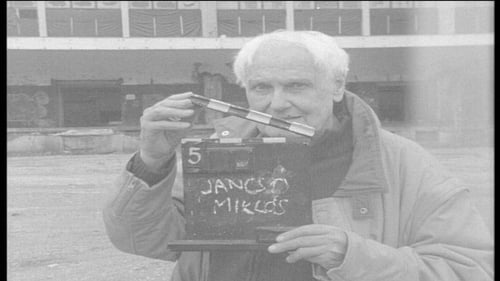
Self
Reconstructions of unrealized Hungarian films in cooperation with the greatest Hungarian film directors.

Screenplay
The Christmas of 1944. The Pásztor family (father, mother, four daughters and a grandchild), are spending the holidays at their country farm. Péter, mothers apple of the eye, soon arrives, and has no objections when his soldiers uniform is made to disappear during the night. The Soviet army, arriving in the footsteps of the fleeing Hungarian army, is commandeering. At night, the soldiers turn up at the house where young women are abiding.

Director
The Christmas of 1944. The Pásztor family (father, mother, four daughters and a grandchild), are spending the holidays at their country farm. Péter, mothers apple of the eye, soon arrives, and has no objections when his soldiers uniform is made to disappear during the night. The Soviet army, arriving in the footsteps of the fleeing Hungarian army, is commandeering. At night, the soldiers turn up at the house where young women are abiding.
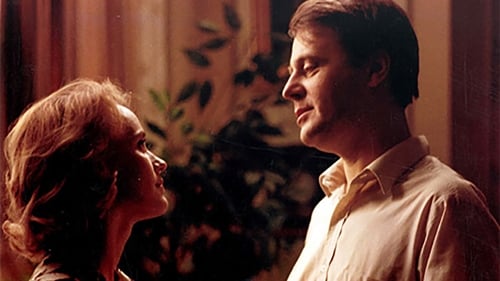
Writer

Director

Director of Photography
Hungary, end of World War II. Five Hungarian soldiers desert their troop which has been directed to Germany. They are escaping with the help of a stamp and unfilled travelling warrants, trying to survive until the war ends.

Director
Hungary, end of World War II. Five Hungarian soldiers desert their troop which has been directed to Germany. They are escaping with the help of a stamp and unfilled travelling warrants, trying to survive until the war ends.

Director
For his film Sára interviewed women who as young girls had endured difficult surroundings and constant denigration in the labor camps. The trilogy showcases uniquely female experiences. We will find out what happened to women who gave birth in the camps and what kinds of survival strategies they employed to get through the 12-hour workdays and the near-starving conditions.

Director
A documentary about Hungarian prisoners of war in the World War II

Director
A documentary about the Gulag

Director
A documentary about forced labor of Hungarians in the Soviet Union

Screenplay
From the intrigues and slander of the branch the painter Hódosi moves out to a hamlet at Hortobágy. He gets into conflict situation as well as he cannot endure that the political and economic elite of the neigbourhood would devastate the nature conservation area with hunting and (tax evading) goose husbandry.

Director
From the intrigues and slander of the branch the painter Hódosi moves out to a hamlet at Hortobágy. He gets into conflict situation as well as he cannot endure that the political and economic elite of the neigbourhood would devastate the nature conservation area with hunting and (tax evading) goose husbandry.

Director

Director of Photography
The opera-film, as opposed to Gluck's Vienna version, is a recollection of the ancient tragic Greek myth. Orpheus, who is able to defeat Hades with the power of art, is unable to conquer his own human defects. Amor is sympathetic to Orpheus' sufferings as he mourns his dead beloved, and lets him know the message sent by the Gods, namely that he may take her home from the underworld if he is capable of not looking at her.

Director
One of the longest films ever made

Director
A five-episode cinema version of Chronicle(1982)

Director
Documentary mini-series.

Director of Photography
Summer of 1956. In the small town in the Hungarian country-side, during the time the chief of police spends in a course in Budapest, Rigó Dezső is the boss with full powers. He is fighting tooth and nail to help the local football-team stay in the second national selection. During one of the matches, he beats the referee to death.

Director

Director of Photography
During World War II Carlotta, the circus owner maintains herself, her lover and her rather run-down circus-team by illegal man-smuggling. In the year of 1944, besides the usual refugees, she even has to take Professor Máté, the renown mathematician to the Yugoslavian partisans. The team is joined by Carlotta's psychotic son who has escaped from an asylum.
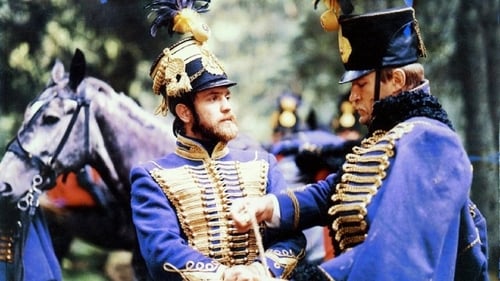
Writer
The film tells the story of a regiment of Hungarian hussars stationed in Poland. The hussars, mostly ordinary men, have heard news of the uprising and wish to return to the homeland to defend the newly independent country. The Empire, on the other hand, is firmly resolved that all Hungarian troops in the imperial army should be kept as far away from the trouble spot as possible, knowing that most soldiers would be loyal to Budapest rather than Vienna.

Director of Photography
The film tells the story of a regiment of Hungarian hussars stationed in Poland. The hussars, mostly ordinary men, have heard news of the uprising and wish to return to the homeland to defend the newly independent country. The Empire, on the other hand, is firmly resolved that all Hungarian troops in the imperial army should be kept as far away from the trouble spot as possible, knowing that most soldiers would be loyal to Budapest rather than Vienna.

Director
The film tells the story of a regiment of Hungarian hussars stationed in Poland. The hussars, mostly ordinary men, have heard news of the uprising and wish to return to the homeland to defend the newly independent country. The Empire, on the other hand, is firmly resolved that all Hungarian troops in the imperial army should be kept as far away from the trouble spot as possible, knowing that most soldiers would be loyal to Budapest rather than Vienna.
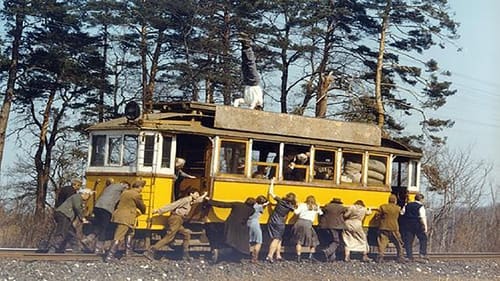
Director of Photography
"Budapest Tales" is about a group of people (consisting of Szabo regular Andras Balint along with Ildiko Bansagi and Karoly Kovacs) who find a broken down tram while trying to go to the city. The people band together and try to get the tram back on the train tracks and head towards the city. Along this journey the passengers encounter many people who join them on the tram. What started out as only a handful of people has now turned into a small village. As the people travel on to the city each person takes on certain roles and through the course of time these roles will change. Some people fall in love, others out of love, and a few even die. But life goes on. The people keep the tram going hoping to reach Budapest.

Director of Photography
An orphan girl suffers abuse from her adoptive parents.

Director of Photography
In the summer of 1944 soldier Csorba is rewarded with furlough at a price of having committed a murder. He escapes. He tries to get to the heights of the Carpathians with Mother, to the cave of those who wish to die. That is where his mother and his father, the deserter, might be hiding.

Director of Photography
The loving couple of this grotesque parable parody of the Kádár-regime, Mária and István row to an uninhabited, idyllic island. Soon crazy tent-pitchers swarm to the island, led by an official representative of the regime.

Screenplay
The loving couple of this grotesque parable parody of the Kádár-regime, Mária and István row to an uninhabited, idyllic island. Soon crazy tent-pitchers swarm to the island, led by an official representative of the regime.

Director
The loving couple of this grotesque parable parody of the Kádár-regime, Mária and István row to an uninhabited, idyllic island. Soon crazy tent-pitchers swarm to the island, led by an official representative of the regime.

Director of Photography
On one hot summer night, the residents of a Hungarian apartment house slated for demolition restlessly revisit their haunted pasts as they face an uncertain future. In a gently turning kaleidoscope of dream imagery, regret-laden nostalgia and painstakingly intimate detail, the looming wrecking ball pales in significance to the accumulated experiences each dreamer revisits. Pre-war prejudice, occupying Nazis and Stalinist deprivations all come and go as each tenant’s backward glance yields moments of aching sensuality, infectious exuberance and catastrophic loss.

Director of Photography
The story of the film takes place in 1929 in a model prison providing a kind of reflection how society works out there. Udvardi, the weakling and indulgent director is experimenting with putting in practice a kind of pseudo-humanist utopia about the institution of a 'civilised prison'.

Director of Photography
Based on the stories of Hungarian writer Gyula Krúdy, this iconic film is a lush and sensuous depiction of the life, loves and memories of serial seducer Szindbád.

Director of Photography
The film is a historic parable about the topicality of revolution. 1514. The peasants' uprising is over, Dózsa has been arrested. Werbőczy tries to get the imprisoned peasant leader deny the revolution and offers him the lives of his people in exchange.

Director
This film constructs an anguished hymn to peace using pieces of movie newscasts, photographs, and monuments about those who have fallen in the Great War.

Director of Photography
An aspiring film student is denied a scholarship to the state-funded university when his father is thrown in jail. The man had stopped a train in order to facilitate the union between two old friends. The son then takes a job as a land surveyor and meets a Greek man who works towards the collective benefits of the peasants. The man is killed in a peasant uprising prompted by a bureaucratic boondoggle. The surveyor looks after the man's widow as his emerging political and social awareness leads him take a stand against government injustice. Another incident, in which gypsies are rounded up by state hygiene workers, further galvanizes the man's beliefs. He photographs the incident, and his work allows him to be accepted into the school from which he was previously denied admission.

Writer
An aspiring film student is denied a scholarship to the state-funded university when his father is thrown in jail. The man had stopped a train in order to facilitate the union between two old friends. The son then takes a job as a land surveyor and meets a Greek man who works towards the collective benefits of the peasants. The man is killed in a peasant uprising prompted by a bureaucratic boondoggle. The surveyor looks after the man's widow as his emerging political and social awareness leads him take a stand against government injustice. Another incident, in which gypsies are rounded up by state hygiene workers, further galvanizes the man's beliefs. He photographs the incident, and his work allows him to be accepted into the school from which he was previously denied admission.

Director
An aspiring film student is denied a scholarship to the state-funded university when his father is thrown in jail. The man had stopped a train in order to facilitate the union between two old friends. The son then takes a job as a land surveyor and meets a Greek man who works towards the collective benefits of the peasants. The man is killed in a peasant uprising prompted by a bureaucratic boondoggle. The surveyor looks after the man's widow as his emerging political and social awareness leads him take a stand against government injustice. Another incident, in which gypsies are rounded up by state hygiene workers, further galvanizes the man's beliefs. He photographs the incident, and his work allows him to be accepted into the school from which he was previously denied admission.

Director of Photography
The changing and turbulent history of Hungary is seen through the eyes of three men over a 30-year period in this somber drama. The three recall the highlights of their lives in flashbacks as they reminisce in the mid 1960s. The venerable trio begin their story in the 1930s, through World War II, and the decade beyond the communist invasion of 1956.

Director of Photography
Mihály, a retired foundryman has brought up his sons in a very disciplined and strict way, and as a result they have become a doctor, an engineer, and a teacher. However, his half orphan grandson, Misi, has been spoilt, and become skilled in nothing else really but riding his motorbike and going to parties. He has been involved in shady businesses a number of times already. Having experienced so many difficulties, privation and hardship in his own life and now seeing Misi's irresponsible lifestyle, the old man's bitterness is growing day by day.

Director
People who live on farms in seclusion far away from any civilization go to see a performance of Shakespeares Twelfth Night by the Universitas Ensemble.
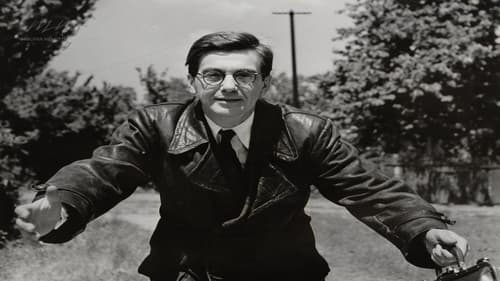
Director of Photography
The beginning shows Hungary devastated by the war and the postwar reconstruction with its communist government. Our hero (played first by Dániel Erdély and later, as a young man, by András Bálint) is clearly determined to find out what he can about his father who died young. All he knows is that he was a doctor and perhaps he was an honored victim of fascism. He never really finds out but his relationship with his mother, his friends and his Jewish girlfriend will make him totally independent of this need to find all about Apa or Father.
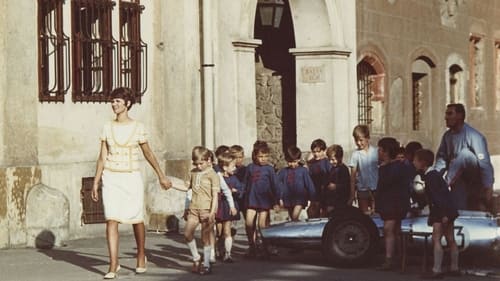
Director of Photography
An action packed, brightly colored film depicting the adventures of a six-year-old boy attending school for the first time. He befriends a little girl, Zizi, who becomes his constant companion in a child's world of discovery.

Director of Photography
A group of students cope with the disappearance of their friend.

Director of Photography
During WW II, a Hungarian child in a concentration camp is saved and raised by a Polish family. After 19 years, the young woman publishes a letter in local papers looking for her long-lost family. This documentary from Laszlo Nadasy follows the search for her relatives, commenting on the realities she faced in the camp and the emotions of those involved in her life.

Director
Sándor Sára's meditation on loneliness and the human condition.

Director of Photography
The first signs of autumn are seen in a landscape along a river. Some villagers are stacking a bed of stone blocks on the river-bank to avoid more eroding. Others are occupied by ploughing, fishing or repairing. A small steamboat passes by. In the engine room a stoker is shovelling coal into the oven. Further down the river a small town is passed by the water. A rowing-team is training for coming races. Some biologists are looking at microbes from the water through a microscope. A group of workers are painting a new barge and push it into the river. When a small boy sees a racing boat, he leaves his sand-castle and runs along the river.

Director of Photography
Huszárik's graduation film was another short entitled Groteszk (Grotesque) in 1963 about a strange train voyage of an artist carrying his own picture.

Cinematography
Man and his environment.

Screenplay
This film shows the gipsies' life in Hungary, the prejudices they are faced with when adapting themselves to society and the gipsies' ancient customs which often defy adaptation.

Director
This film shows the gipsies' life in Hungary, the prejudices they are faced with when adapting themselves to society and the gipsies' ancient customs which often defy adaptation.

Director of Photography
A group of plate-layers are packing the stone-bed under the rail with their pickaxes. They swing their picks in a coordinated, rhythmic way, thereby creating a sequence of rings, when they hit the stones or the rail, which sounds almost as music. When a train passes by, they stand silent beside the rail for a while, and then start the rhythmic beats again.

Director of Photography





































